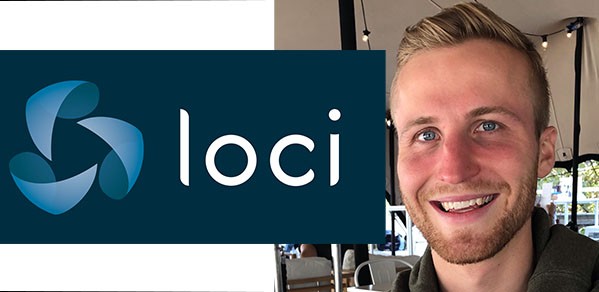
Imagine creating your own 3D virtual recreations of real-life scenes from just a single image or video. This is what alumnus Jack Davis is aiming to deliver with his computer vision start-up Loci.
We want Loci to be the go-to platform for creating 3D virtual worlds, which will enable others (both businesses and amateur creatives alike) to create their own immersive experiences of real-life scenes.
Alumnus Jack Davis
Using recent advancements in computer vision, Loci is building a platform to enable 3D artists, businesses and individuals to create immersive 3D virtual world replicas of any real-life image. This is done through image-based search technology across the universe of 3D assets.
The merging of an interactive virtual world with the physical world has already begun and is something which is expected to grow, says Jack. Examples include the emergence of the Metaverse – a simulated digital environment that uses augmented reality (AR) and virtual reality (VR) to create a single, universal virtual world that is primarily focused on social connection. Fancy attending a Metaverse concert? A games company recently did just that and held its first live virtual concert from inside a video game.
“We want Loci to be the go-to platform for creating these digital worlds, which will enable others (both businesses and amateur creatives alike) to create their own immersive experiences of real-life scenes,” said Jack.
“This could range from video game developers creating games set in real-life environments, to visual effects artists for film and TV, or property agents wishing to conduct virtual 3D viewings.”
Jack’s 3D reconstruction of a tennis match from television footage, completed for his MPhil thesis project.
Jack founded Loci following the completion of his MPhil in Machine Learning and Machine Intelligence, a course which he credits as being “incredible preparation” for launching his start-up.
“For me, the best part of the MPhil was the freedom it gave you to dive deep into any field of machine learning that interested you, whether that was natural language processing (NLP), computer vision, speech recognition, reinforcement learning, statistical machine learning etc. The 2020-2021 cohort, that I was lucky enough to be part of, have gone on to do great things, whether that be pursuing their research interests in PhDs, getting jobs at some great tech companies, or going off and doing their own thing. The MPhil is a great stepping stone for any of these paths.”
For his MPhil thesis project titled 3D Reconstruction of Sports Footage from a Single Camera, Jack reconstructed a tennis match in 3D, from single camera television footage, using software that he created. But, he says, the one drawback was it was limited to just tennis, which is why he decided to form his start-up to generalise the method to work with any real-world scene.
“To date, the creation of virtual 3D worlds, for example in the gaming industry, has largely been a manual process which can take several weeks of work from professional 3D artists. The computer vision research in this field is now at the stage where we can start to build commercial tools to automate the creation of such worlds, whilst retaining the creative freedom of the artist,” he said.
Shortly after graduating last year, Jack went on to win the 2021 Hellings Trinity Bradfield Prize of £5,000 and three months’ worth of mentoring at The Bradfield Centre, a technology hub based at the Cambridge Science Park. His start-up has since closed a venture capitalist-led pre-seed round to further develop the Loci rendering engine.
“At Loci, we want to give everyone the ability to create immersive virtual 3D worlds from any ordinary image/video footage,” he said. “It blows my mind to start to think of the applications and new forms of content that will be made possible.”
- Loci is currently growing its team. To find out more, email Jack Davis directly.

